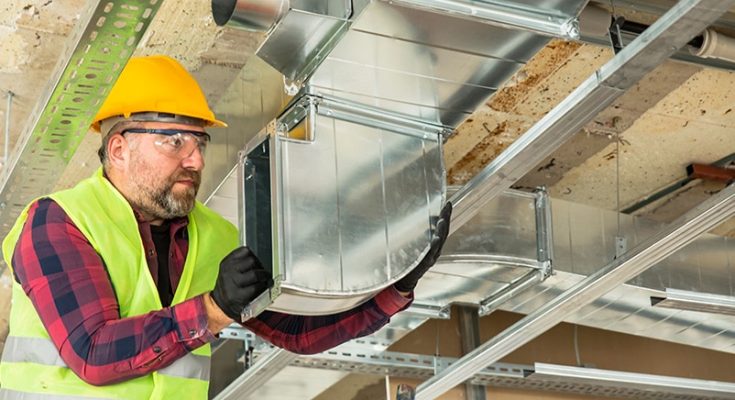HVAC technicians are in high demand, and for good reason. They are responsible for installing, maintaining, and repairing heating, ventilation, and air conditioning systems in homes, businesses, and other buildings. If you’re interested in pursuing a career as an HVAC technician, you must undergo specialized training and education to become a skilled professional. Here’s a guide on how to become an HVAC technician.
Education Requirements
Most HVAC technicians have a high school diploma or equivalent. After completing high school, you can enroll in an HVAC training program at a community college, technical school, or vocational school. These programs typically last 6 months to 2 years and provide hands-on training in HVAC systems and related technologies. You’ll learn about refrigeration, electrical systems, ductwork, and safety regulations during this training.
Apprenticeship Programs
Many HVAC technicians gain experience through apprenticeship programs. These programs are typically sponsored by employers or labor unions and involve on-the-job training under the supervision of an experienced technician. Apprenticeships can last 3 to 5 years, during which time you’ll gain practical experience installing and repairing HVAC systems.
Certification
Many employers prefer or require HVAC technicians to have certification or licensure. Certification is usually voluntary, but it demonstrates your expertise and knowledge in the field. Several organizations offer certification for HVAC technicians, including the North American Technician Excellence (NATE) and the HVAC Excellence Certification Program. Certification typically involves passing an exam that covers knowledge and skills related to HVAC systems and safety regulations.
Continuing Education
HVAC technology is constantly evolving, so HVAC technicians need to stay up-to-date with the latest developments in the field. Continuing education courses and training programs can help you stay current and improve your skills. Some employers also offer in-house training programs or tuition reimbursement for continuing education courses.
Becoming an HVAC technician requires specialized training, education, and practical experience. By enrolling in an HVAC training program, participating in an apprenticeship, obtaining certification, and continuing your education, you can become a skilled HVAC professional with a rewarding career. The demand for HVAC technicians is expected to grow in the coming years, so now is a great time to pursue this career path.
